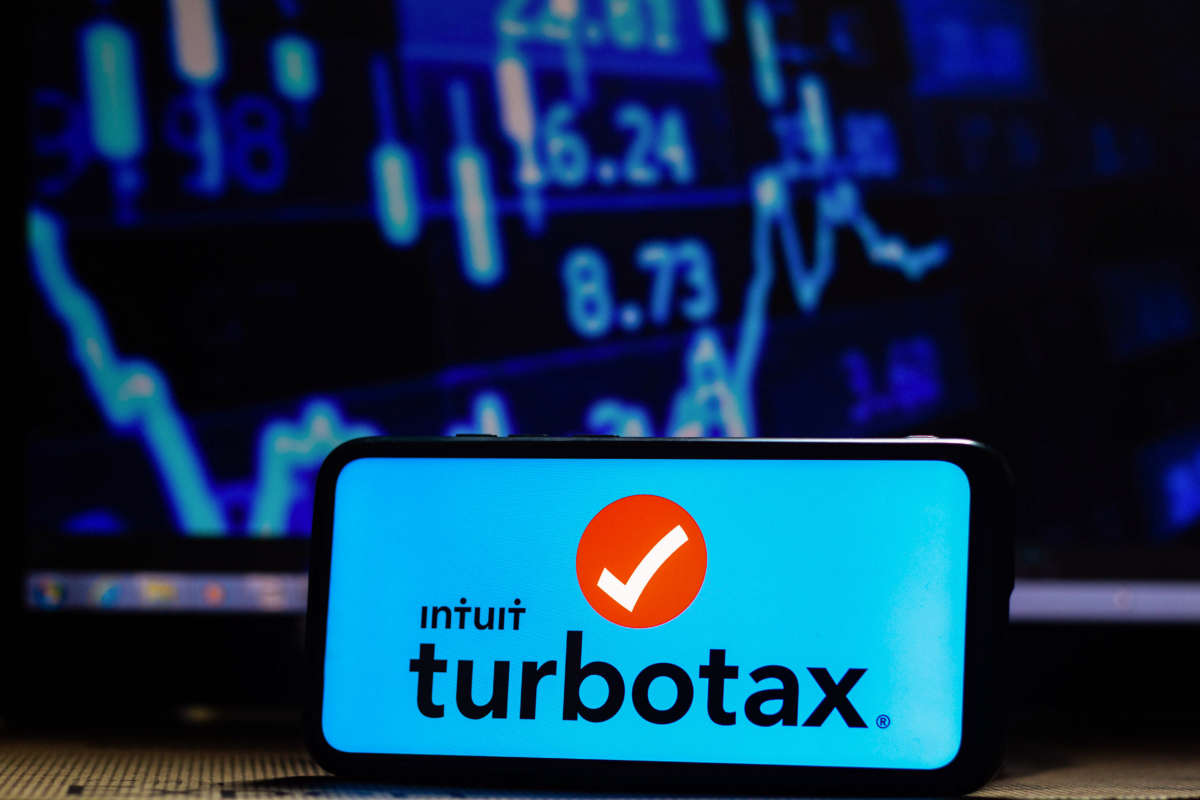Members of Congress are calling for an investigation of Intuit, the company that owns TurboTax, after it failed to adequately respond to questions from Sen. Elizabeth Warren (D-Mass.) in an April letter citing OpenSecrets’ reporting on the tax preparation company’s lobbying.
Intuit has spent decades lobbying against free government-sponsored tax filing services, and the tax prep company’s lobbying efforts have ramped up significantly in recent years.
Along with its subsidiary, Credit Karma, Intuit spent $840,000 during the first quarter of 2022 — more than any prior first quarter.
Even without the $60,000 in spending by Credit Karma, Intuit’s $780,000 in direct first quarter spending is more than the tax prep company has spent in the first quarter of any prior year, up from $650,000 during the same period in 2021 and $750,000 in 2020.
The company, along with its subsidiary, spent nearly $3.3 million in 2021. Intuit first broke $3 million in annual lobbying spending in 2020 with $3.4 million.
Following scrutiny of the tax prep company’s lobbying and escalating tensions around its marketing practices, members of Congress are calling for an investigation into what they describe as Intuit’s “revolving door scheme.”
Citing reporting by OpenSecrets in April, Warren sent a letter to Intuit CEO Sasan K. Goodarzi in April. Warren accused the company of “extensive lobbying and adroit influence peddling” and requested a response to questions about their activities.
On June 21, Warren joined with Reps. Katie Porter (D-Calif.) and Brad Sherman (D-Calif.) to send a letter calling on the Acting Treasury Department Inspector General Richard K. Delmar, Treasury Inspector General for Tax Administration J. Russell George and Acting Inspector General at the Federal Trade Commission Andrew Katsaros to mount an in-depth investigation into Intuit’s “use of the revolving door to influence policy decisions” and the “extent to which Intuit — and other Free File Alliance members — have used the revolving door to exert undue influence on department and agency policies, particularly Free File.”
But the lawmakers contend that “Intuit’s response [to the initial letter] was inadequate, failing to dispel any of the concerns about its unethical behavior or to provide information on any employee that had made a trip through the revolving door, despite the extensive reporting on specific egregious cases,” highlighting “troubling reports of Intuit’s abuse of the revolving door and the company’s hiring of former federal regulators and influence-peddlers to defend its shady business practices.”
In the June 21 letter, the lawmakers also asked the inspectors general to “assess whether the codes of conduct and ethics policies of Intuit and other Free File Alliance members are sufficient to prevent conflicts of interest and abuse of the revolving door.”
The tax prep company’s current K Street contingent boasts an impressive slate of “revolving door” lobbyists, with 41 of Intuit’s 55 lobbyists previously holding federal government positions. Intuit has spent more than $41 million on lobbying since 1998 and enlisted dozens of revolving door lobbyists, including multiple former members of Congress. They have included former Reps. Randy Forbes (R-Va.), Charles Boustany (R-La.), Albert Wynn (D-Md.) and former Sen. Tim Hutchinson (R-Ark.).
Lawmakers are not the only ones putting Intuit in the hot seat.
In April, the Federal Trade Commission filed a complaint accusing Intuit of deceptively advertising their paid tax preparation services as free filing.
On May 4, Intuit announced that the company agreed to pay $141 million in restitution to 4.4 million low-income customers who were charged for using the TurboTax Free Edition.
And on June 28, law firm Pomerantz LLP announced it is investigating Intuit investors’ claims about concerns about Intuit, its officers or directors engaging in “securities fraud or other unlawful business practices.”
48 Hours Left: All gifts to Truthout now matched!
From now until the end of the year, all donations to Truthout will be matched dollar for dollar up to $28,000! Thanks to a generous supporter, your one-time gift today will be matched immediately. As well, your monthly donation will be matched for the whole first year, doubling your impact.
We have just 48 hours left to raise $28,000 and receive the full match.
This matching gift comes at a critical time. As Trump attempts to silence dissenting voices and oppositional nonprofits, reader support is our best defense against the right-wing agenda.
Help Truthout confront Trump’s fascism in 2026, and have your donation matched now!
